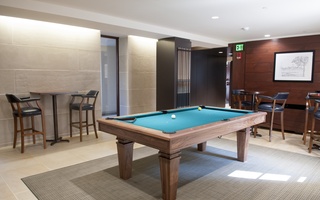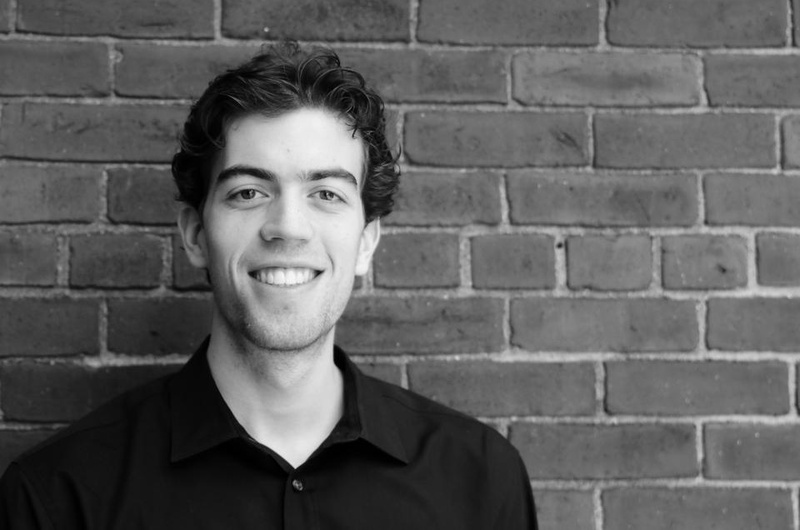Lucien D. Werner ’13 was four when he first learned to play the cello and has been passionate about music ever since. He and his three sisters formed the “Werner Chamber Quartet,” and together they have performed in France, Austria, Holland, Italy, and Carnegie Hall in New York. When he’s not jet-setting across the globe, Werner is the music director and conductor of Harvard’s Bach Society Orchestra and the president of the Brattle Street Chamber Players. Werner led the BSO in their first concert of the season on Saturday October 20 at 8pm in Paine Hall.
The Harvard Crimson: How has Harvard shaped your interaction with music?
Lucien D. Werner: I’ve played music for my whole life. I had the good fortune to grow up in a musical family. It was a very natural thing, and it was just something we all loved doing. I got more serious about it in high school but didn't apply to conservatory because I wanted a university liberal-arts education. But when I got here (to my surprise) there was an incredible music community filled with many fantastic players: people who are passionate about music and think intelligently about music at a really high level. I started conducting when I came here, and it has been a great growth experience for me. There are these orchestras that need student music directors, so there is a wealth of opportunities to explore music and to do it a really high level.
THC: How is conducting music different from playing it?
LDW: Conducting is a very strange thing. It is a beast I don’t totally understand, and it’s a less direct relationship with the production of sound and music than [what] you have playing an instrument. I’m a cellist primarily, and when I sit there with a cello, there’s a very direct way of placing the bow on the string: you draw it, the string vibrates, and you have sound. With conducting, you’re up there moving your arms, making your gestures and facial expressions, and somehow that translates into these incredible sounds the people in the orchestra play. For me, it is not as intuitive as playing an instrument, but what you can do with it is incredible. To get 50 to 60 people [to play] together and to think the same way...is quite incredible...when we get it to work.
THC: In what ways does BachSoc interpret the music it plays as something new and fresh?
LDW: I’m of the view that every performance has something unique about it. Maybe that’s as obvious as, “Oh it’s being played now in this space for these people by these people.” So there is a way to be unique. We can do conscious things to affect our interpretation. We may want to take a particular piece at a certain tempo, or I might decide I want to hear it slower, so we’ll hold it back. I might have a vision for how I want this piece to sound or what effect I want it to leave, which is very different from what another conductor might do. There’s one piece that we’re doing this concert cycle by Wagner, “Siegfried Idyll,” which is a piece written by the German composer for his wife on the occasion of the birth of his first son. Some conductors might think of it as a lullaby, like the child is sleeping with his mother and everything is peaceful. Or it can be a more boisterous occasion and the piece is about his joy. Music has so many dimensions to it. You can really take an active role in what you want to highlight.
THC: What are the major themes for the music of this past performance?
LDW: I tried to find connections and interesting links between the works to put them in context. Music is not written in a vacuum. It is an entire historical, cultural context. All these composers are immensely aware of what came before them and what was going on around them. I really wanted to keep that in mind. So I selected pieces that have interesting structural connections....We have a progression of German music from Bach, the father of Western tonal music, followed by Haydn who invented a lot of these forms. He invented the genre of the symphony itself. It did not exist before Haydn codified it in his 100 compositions of the symphony type. Then Wagner brought tonal music to the edge where he took harmony and dissonance as far as it could go until it was unclear whether or not it could go further. And then Webern took it all the way and developed the 12-tone system, which abandoned traditional harmony and brought us into this completely new sonic world.
THC: What has been your favorite musical experience at Harvard?
LDW: It has nothing to do with classical music. My freshman year, some people in my dorm and I formed a band called “Ki Ken Tai Ichi.” I was playing electric guitar and electric cello. Electric cello sounds pretty cool when you hook it up to a guitar amp. We had one rehearsal and went into the freshman Battle of the Bands, and we surprisingly ended up winning. It was just this crazy experience where none of us were rock musicians but we just got together and decided to have some fun. I’d say that was one of the most memorable things. Maybe not the highest quality, but definitely something I’ll remember.
THC: Do you plan to pursue music when you graduate?
LDW: Hopefully—that is the plan. It’s kind of a brutal and fickle world [in the music world]. I guess most things are. But I’m applying to music conservatory for cello conducting. But music will always be a part of my life in a big way. It’s just determining how and what’s the best path to get there.
Read more in Arts
Goulding Shows Maturation on Sophomore ReleaseRecommended Articles
-
To Organize Harvard String QuartetteUnder the direction of Samuel Smith '25, a Harvard String Quartette is to be organized this week. Trials for membership
-
BROWN ORATORS DOWN UNIVERSITY DEBATERSBrown gained an audience's decision over Harvard last night in Holden Chapel in a debate marked by a careful arrangement
-
Bachsoc Embraces BaroqueThis Saturday, the Bach Society Orchestra will have its fourth performance of the school year. The concert will feature three pieces: Salieri’s “La Tempest di Mare,” Bach’s Orchestral Suite No. 3 in D Major, and Vivaldi’s “The Four Seasons” with violin soloist Keir D. GoGwilt ‘13.
-
 Dunster Residents Praise Common Spaces, but Not Hall Bathrooms
Dunster Residents Praise Common Spaces, but Not Hall Bathrooms -
 Authors Consider Music's Place in Vietnam War Narratives
Authors Consider Music's Place in Vietnam War Narratives














